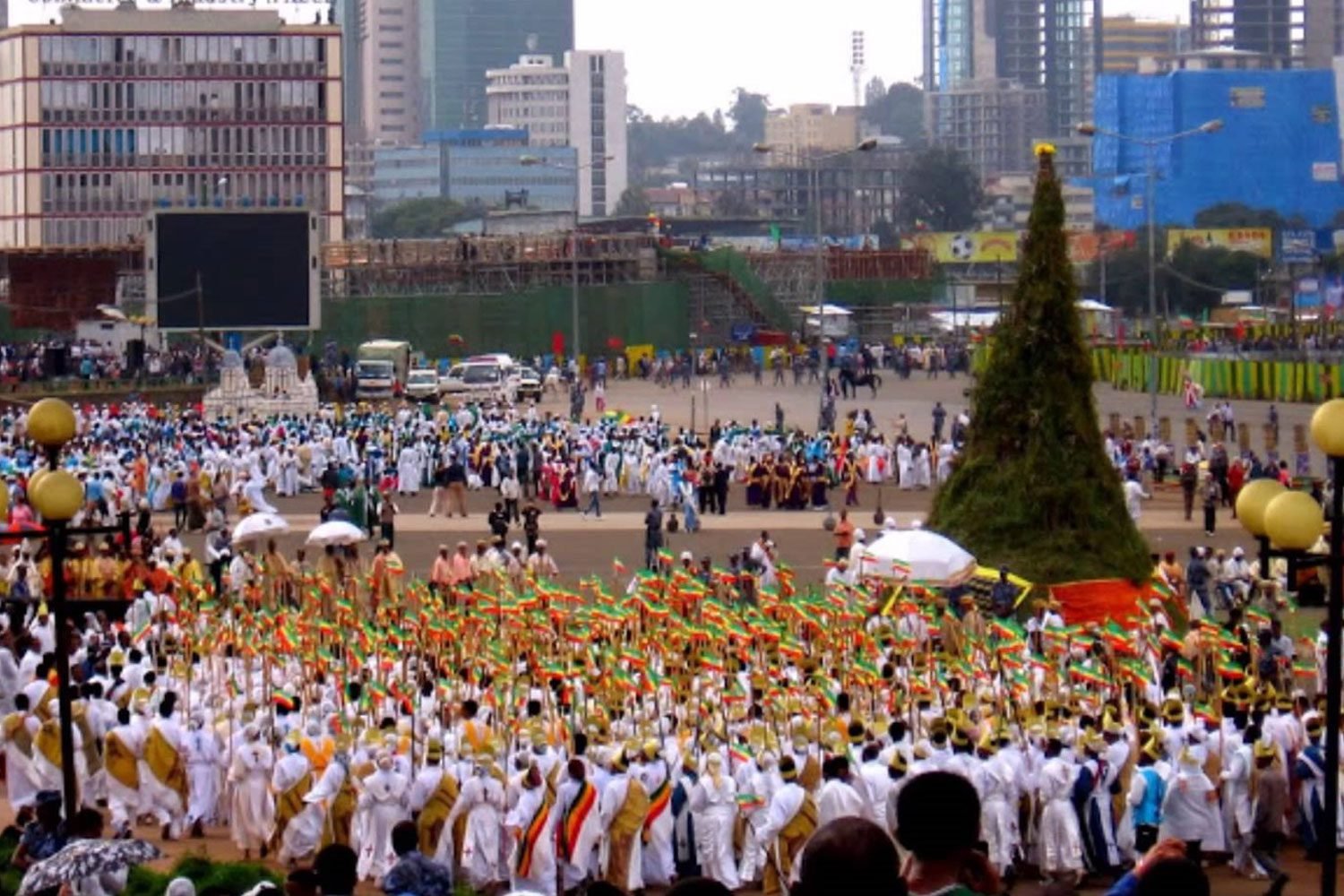


Members of the Ethiopian Orthodox Church observe a special 43-day fasting period called ‘Tseome Nebiyat,’ the fast of the prophets, preceding Christmas. During this fasting period, followers abstain from meat and dairy, adopting a vegetarian diet.
On the eve of Genna, the faithful, clad in white traditional garments, gather at churches for midnight mass services that extend into the morning of Christmas day. While the mass service is uniform across most Orthodox Churches, Lalibela’s rock-hewn churches offer a unique celebration.
Lalibela, one of Ethiopia’s oldest towns located in the Northern part of the country, was the seat of the Zagwe dynasty in the 12th and 13th centuries. Scripted by the Ethiopian Orthodox Church as the second holy city of Christianity after Jerusalem, Lalibela boasts 11 monolithic rock-hewn churches, carved by King Lalibela in the 12th century with the aspiration of creating the ‘new Jerusalem in Ethiopia.’
Designated as UNESCO world heritages, the rock-hewn churches of Lalibela attract pilgrims, especially during Christmas. The Christmas mass in Lalibela is exceptional, featuring dozens of priests in white traditional attire forming circles at the top and bottom of the monolithic churches.
They sing a spiritual song in the Ge’ez language, “Baza Kulu Lealem, Yom Tewelede” meaning “the Savior of the world is born today,” accompanied by the rhythmic beats of the “Kebero,” a drum-like instrument.
Ye Genna Chewata is a traditional Ethiopian game similar to field hockey, played during the Christmas season. Using sticks called ‘Gena,’ players hit a round, hard wooden ball known as ‘Rur.’ Participants wear special traditional clothes and shoes, reflecting respect for the culture, fans, and competitors.
Before the game begins, competing teams designate leaders, and two elders from the crowd become referees. The game, starting in the afternoon, can last until sunset. Legend has it that the game originated from the joy of shepherds upon hearing of the birth of Jesus Christ, prompting them to joyfully throw everything around with their wooden sticks.
Ye Genna Chewata is a symbol of freedom, equality, democracy, friendship, and happiness in Ethiopia, reflecting a time when these values were not universally acknowledged and practiced as they are today.
The program refers to our standard tour but it can be varied to fit your needs. Chat with us, book a video call or use the form below for more information.
With Baregota Travel & Tour you too can get into the heart of Ethiopian culture and live a similar experience. Explore our tours or design your dream trip. If you need help or more information don't hesitate to contact us.

